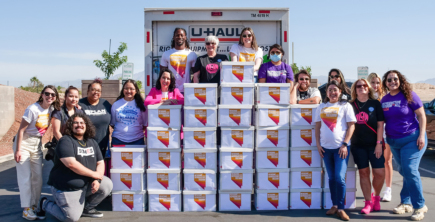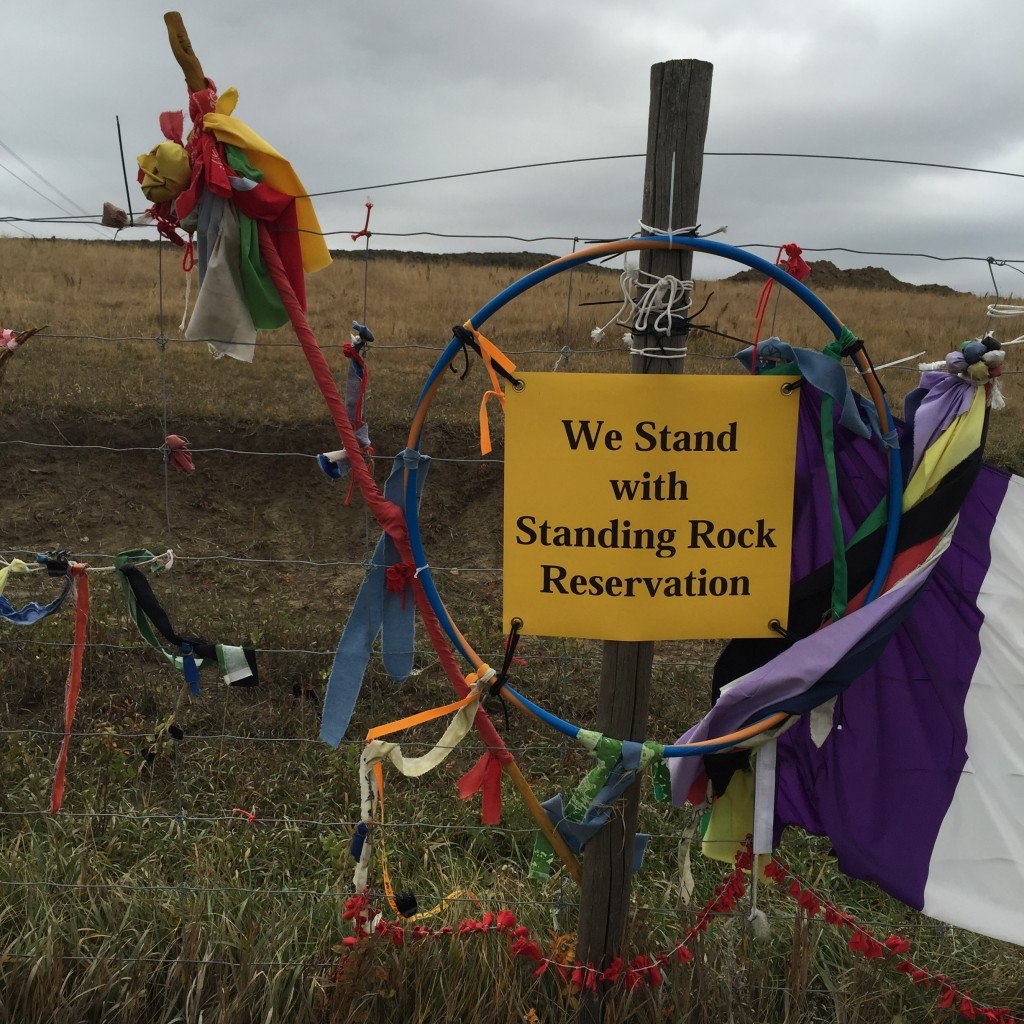
Our Community

After enduring three seasons of escalating violence with the use of constant ground and air surveillance, arrests and attacks from militarized police and private security contractors armed with water cannons, dogs, tear gas, rubber bullets, sonic weapons and concussion grenades, dedicated peaceful #NoDAPL water protectors remain resilient through sub-zero temperatures at Standing Rock. Tides stands with them.
In October, with an invitation from the Standing Rock Sioux Tribe and organized by Native Americans in Philanthropy (NAP) I participated in a three day educational gathering at Standing Rock for the philanthropic sector. Acting as a connector between grantmakers and Native organizations, tribal governments, and communities, NAP is committed to engaging, learning, and sharing resources and best practices grounded the Native tradition of reciprocity. As a group of about twenty from across the U.S. with representatives from community and international grantmaking foundations, public charities, and funding networks, we met to engage in conversation with one another and the Standing Rock community, and those in the camps who have gathered to protect natural resources, sacred places, and show unity with the #NoDAPL movement. We shared information about grantmaking at our organizations, explored possibilities for support, collaboration, and amplifying voices, and brought back the knowledge we gained to better strategize on how to be of support and raise awareness.
While at Standing Rock we learned about local history and culture from Sioux Tribal Elders, Native researchers, and local dancers and drummers, and the context for philanthropic grantmaking and programming from Sarah Eagle Heart, CEO of NAP. At Sitting Bull College we met with youth leaders from community-based organizations to discuss their efforts, hopes, and vision for Standing Rock. At Oceti Sakowin camp we walked up Facebook Hill with its wind turbine charging station and media and legal support tents. We visited the school tents and tipis and learned about the projects children in the camp were working on — including oral histories and documentary films — while studying the Lakota language. We learned about the solar panels, food, clothing and wood supplies that were donated, saw firsthand how security operates at camp, and gathered in prayer around the sacred fire. The kitchen staff warmly greeted us as they cooked, and we talked with prayerful resistors as they were winterizing their tents. Later we drove to the pipeline site while a surveillance plane circled above us.
Arriving at the Standing Rock Sioux Tribal Council Office, we learned more about long-term economic development initiatives taking root on the reservation and met with Chairman David Archambault II who shared his perspective on the realities and challenges facing the camps and the tribe. He explained that with the rapid growth of the camps, there is a lack of existing infrastructure to support the number of people coming to Standing Rock. The Council is being stretched in different directions to provide logistical and communications support for many evolving needs. But in this moment, the camps are serving as a positive place of healing for people as the rates of suicide, violence and drug use are on the decline.
In partnership with our donor partners, Tides has played an important role in supporting those at Standing Rock. In the last two months of 2016, Tides initiated thirteen urgent action grants to organizations on the ground including Indigenous Environmental Network, Honor the Earth, New Energy Economy, Earthjustice, Seventh Generation Fund for Indigenous Peoples, and directly to the Standing Rock Sioux Tribe. Further, from January 2014 to December 2016, Tides made over 600 grants totaling $32.7M to organizations benefitting Native and Indigenous communities globally. This accounts for approximately 7% of Tides’ total grantmaking over the same period and is above the shockingly low level of under 1% of overall charitable foundation giving to Native causes.
In 2017, we will continue to help strategize and support our partners’ philanthropic goals by taking smart risks and supporting innovative ventures. We are dedicated to collaborating with new movements, initiatives, networks, and campaigns to demonstrate the power of Tides’ people, relationships, and field knowledge to accelerate the pace of social change with a vision of shared prosperity and social justice for all.
With the looming pro-pipeline administration coming into office that wants to access and privatize natural resources, there are growing concerns about the work ahead. Tides will continue to stay informed and engaged and build internal expertise to work with our donor partners and those wishing to sustain the momentum of this Native-led historic environmental justice movement for the long-term.
During my trip to Standing Rock, we were warmly welcomed, shown incredible hospitality and generosity, and given open-hearted access. I very sincerely thank NAP and those who hosted and trusted our group and shared their traditions, insights, prayers, and knowledge with us.
Kimberly joined Tides in New York in 2012 and manages a diverse client portfolio that includes private foundations, donor advised funds, and fiscally-sponsored projects. Email her at [email protected]
*Appreciation to Katrin Sharp, Senior Grants Specialist, who provided analysis on Tides’ grants data.

Our Community

Crisis Response Fund

Crisis Response Fund

Read the stories and hear the voices of social change leaders fighting for justice.